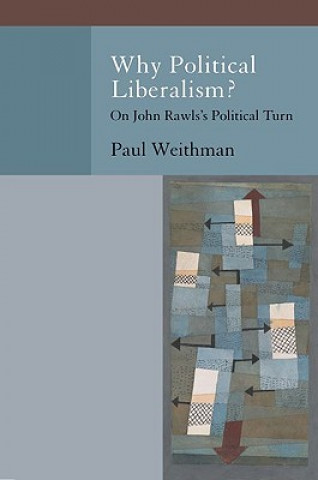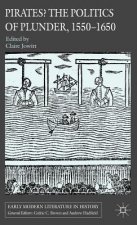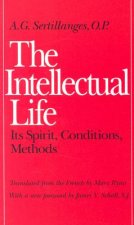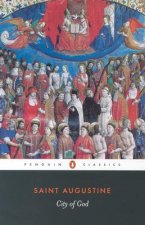
Kód: 04519241
Why Political Liberalism?
Autor Paul J. Weithman
In WHY POLITICAL LIBERALISM?, Paul Weithman offers a fresh, rigorous, and compelling interpretation of John Rawls's reasons for taking his so-called "political turn". Weithman takes Rawls at his word that justice as fairness was r ... celý popis
- Jazyk:
 Angličtina
Angličtina - Väzba: Pevná
- Počet strán: 400
Nakladateľ: Oxford University Press Inc, 2011
- Viac informácií o knihe

Mohlo by sa vám tiež páčiť
-

Eighth Air Force Bomber Stories
26.98 € -4 % -

I'm Over All That
11.25 € -

Linguistic Atlas of the Middle and South Atlantic States
46.57 € -

Pirates? The Politics of Plunder, 1550-1650
70.22 € -

Gangs in America III
244.97 € -

Charter and Community Schools
108.27 € -

Elusive Promise of Indigenous Development
36.42 € -10 %
Darčekový poukaz: Radosť zaručená
- Darujte poukaz v ľubovoľnej hodnote, a my sa postaráme o zvyšok.
- Poukaz sa vzťahuje na všetky produkty v našej ponuke.
- Elektronický poukaz si vytlačíte z e-mailu a môžete ho ihneď darovať.
- Platnosť poukazu je 12 mesiacov od dátumu vystavenia.
Viac informácií o knihe Why Political Liberalism?
Nákupom získate 386 bodov
 Anotácia knihy
Anotácia knihy
In WHY POLITICAL LIBERALISM?, Paul Weithman offers a fresh, rigorous, and compelling interpretation of John Rawls's reasons for taking his so-called "political turn". Weithman takes Rawls at his word that justice as fairness was recast as a form of political liberalism because of an inconsistency Rawls found in his early treatment of social stability. He argues that the inconsistency is best seen by identifying the threats to stability with which the early Rawls was concerned. One of those threats, often overlooked by Rawls's readers, is the threat that the justice of a well-ordered society would be undermined by a generalized prisoner's dilemma. Showing how the Rawls of "A Theory of Justice" tried to avert that threat shows that the much-neglected third part of that book is of considerably greater philosophical interest, and has considerably more unity of focus, than is generally appreciated. Weithman painstakingly reconstructs Rawls's attempts to show that a just society would be stable, and just as carefully shows why Rawls came to think those arguments were inconsistent with other parts of his theory. Weithman then shows that the changes Rawls introduced into his view between "Theory of Justice" and "Political Liberalism" result from his attempt to remove the inconsistency and show that the hazard of the generalized prisoner's dilemma can be averted after all. Recovering Rawls's two treatments of stability helps to answer contested questions about the role of the original position and the foundations of justice as fairness. The result is a powerful and unified reading of Rawls's work that explains his political turn and shows his enduring engagement with some of the deepest concerns of human life. "Weithman has written a masterful work of Rawls scholarship. This book will deepen our understanding of how and why Rawls restructured his theory, and illuminate this fascinating transition in the history of political philosophy." Leif Wenar, Chair of Ethics, Kings College London "Weithman's reconstruction of Rawls's arguments is masterful, convincing and in many ways revelatory. Readers will find that the text provides compelling answers to a lot of puzzling questions about Rawls's project that have lingered for some time. Perhaps most importantly, Weithman gives the best explanation to date of exactly why Rawls felt compelled to revise his theory as he did." Colin Bird, Department of Politics, University of Virginia
 Parametre knihy
Parametre knihy
Zaradenie knihy Knihy po anglicky Humanities Philosophy History of Western philosophy
154.65 €
- Celý názov: Why Political Liberalism?
- Podnázov: On John Rawls's Political Turn
- Autor: Paul J. Weithman
- Jazyk:
 Angličtina
Angličtina - Väzba: Pevná
- Počet strán: 400
- EAN: 9780195393033
- ISBN: 0195393031
- ID: 04519241
- Nakladateľ: Oxford University Press Inc
- Hmotnosť: 708 g
- Rozmery: 241 × 164 × 33 mm
- Dátum vydania: 27. January 2011
Obľúbené z iného súdka
-

Meditations
9.33 € -24 % -

The Myth of Sisyphus
8.11 € -

Why I Am so Clever
3.95 € -15 % -

Meditations
15.01 € -22 % -

Republic
11.97 € -16 % -

Beyond Good and Evil
11.05 € -23 % -

Gay Science
12.57 € -22 % -

Aphorisms on Love and Hate
3.54 € -24 % -

Beyond Good & Evil
15.01 € -8 % -

Meditations on First Philosophy
10.65 € -19 % -

Intellectual Life
19.37 € -19 % -

Socrates' Defence
3.54 € -24 % -

Discourses, Fragments, Handbook
11.66 € -19 % -

Ride the Tiger
21 € -19 % -

Thus Spoke Zarathustra
9.73 € -24 % -

Fear and Trembling
11.05 € -23 % -

Birth of Tragedy
4.05 € -13 % -

Early Greek Philosophy
14.30 € -23 % -

Groundwork for the Metaphysics of Morals
10.95 € -18 % -

Gorgias
11.76 € -

Brief History of Analytic Philosophy - From Russell to Rawls
38.35 € -2 % -

On Duties
13.59 € -4 % -

Discourses and Selected Writings
10.85 € -24 % -

Nicomachean Ethics
5.37 € -28 % -

Nausea
11.05 € -23 % -

Letters from a Stoic
12.37 € -14 % -

Meditations
21.20 € -15 % -

Simulacra and Simulation
22.72 € -

Phenomenology of Spirit
34.80 € -

Twilight of the Idols with The Antichrist and Ecce Homo
5.47 € -26 % -

On Liberty, Utilitarianism and Other Essays
10.04 € -22 % -

On the Suffering of the World
7.91 € -22 % -

Human Condition
21.61 € -8 % -

On the Shortness of Life
8.62 € -17 % -

Existentialism Is a Humanism
9.02 € -19 % -

Think
12.27 € -14 % -

Guide to the Good Life
18.97 € -1 % -

How To Be A Stoic
17.55 € -23 % -

The Symposium
9.43 € -17 % -

Human, All Too Human & Beyond Good and Evil
6.18 € -17 % -

At The Existentialist Cafe
12.17 € -5 % -

Undiscovered Self
28.41 € -

Passions of the Soul and Other Late Philosophical Writings
12.17 € -23 % -

The Trouble With Being Born
13.08 € -18 % -

Leviathan
5.67 € -23 % -

City of God
18.87 € -2 % -

Ecce Homo
10.04 € -22 % -

Enneads
16.23 € -19 % -

On Friendship
7.91 € -22 %
Osobný odber Bratislava a 2642 dalších
Copyright ©2008-24 najlacnejsie-knihy.sk Všetky práva vyhradenéSúkromieCookies



 21 miliónov titulov
21 miliónov titulov Vrátenie do mesiaca
Vrátenie do mesiaca 02/210 210 99 (8-15.30h)
02/210 210 99 (8-15.30h)